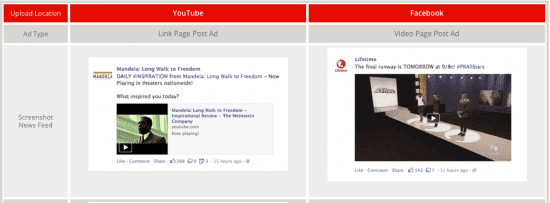IGN Brazil Steals Videos From YouTuber

For the second time in recent memory, the video game publication IGN finds itself in the middle of a plagiarism controversy.
This time, however, it’s IGN Brazil that’s accused of stealing videos from a popular YouTuber and then uploading them to Facebook without attribution.
The allegations come from the YouTuber BabyZone, who took to his Twitter to accuse IGN Brazil of reuploading several of his “Deep Fake” videos to their Facebook page without permission or attribution and with the watermark partly cropped out.
The embedded Tweet included a screenshot of IGN’s version of the video. The “BabyZone” watermark has been partly cropped out (Note the Bab in the upper right-hand corner) and a new IGN watermark has been added on top of it.
And additional screenshot shows a similar theme, this one with the “Zone” still visible.
According to BabyZone, he attempted to file a DMCA notice to get the two videos removed but claims that Facebook rejected the notice.
Ultimately, it was IGN Brazil itself that got in touch with BabyZone and apologized for the “mistake” and saying that they had deleted the videos in question.
This, however, did little to appease BabyZone, who noted that IGN Brazil had earned revenue on the video while it was up and that there was a four day delay in getting the videos removed. He went on to demand additional guarantees that his content would not end up on their Facebook again.
However, this isn’t IGN’s first run-in with misusing content from a YouTuber. In August 2018, IGN faced a significant plagiarism scandal after one of their reviewers, Filip Miucin, posted a video review of the game Dead Cells that used much of the language from an earlier review of the game by Boomstick Gaming.
In that case, IGN responded quickly and not only resulted in the removal of the video but the firing of Miucin. Though IGN was widely applauded for their handling of that case, this one has left viewers with a very bad taste in their mouths.
When you compare the two cases, it’s very easy to see why.
Comparing IGN’s Misdeeds

Though the two cases naturally draw comparisons, they are actually two very different stories of content misuse.
With the Miucin story, the video was ultimately original, at least in terms of visuals and audio. It was the script of the video that had been plagiarized. It was still Miucin’s voice and visuals. While that doesn’t make it less of a plagiarism, it does make it harder to spot. There’s no reasonable way we can expect IGN to both be familiar with Boomstick Gaming’s review and remember it well enough to know that the script was a copy.
Furthermore, after IGN was alerted to the issue, they handled it relatively well. They issued a prompt statement, deleted the video and parted ways with Miucin. Ultimately, it was a case that was not their fault but that they handled reasonably well.
This latest one is completely different.
The videos were simply downloaded from YouTube and reuploaded with cropping. As noted above, part of the watermark is still visible in the two examples provided. Even the most cursory check would have found that these videos were not original to the site and that their use needed to be licensed.
IGN Brazil simply didn’t do that. Whoever uploaded those videos made no real attempt to hide or disguise the infringement. It was a blatant copy without any attribution. Either no one checked or they did check and didn’t care.
But the response is even worse. According to BabyZone, he spent four days trying to get the clearly copied videos removed.
While I cannot comment on why Facebook denied his DMCA notice I will say that Facebook has a long history of denying such notices for no valid reason, even when filed with their form. However, a DMCA notice shouldn’t have been necessary as IGN should have done the right thing the second they became aware, not after the story began to gain traction.
Where the first story paints IGN as a publication that was unaware of the plagiarism and trying to do right, this second one paints a picture of an organization that’s either negligent or malicious in both its plagiarism and it’s infringement.
It’s a very bad look for a supposedly professional news organization.
A Much Bigger Problem
Back in April 2015, I wrote an article entitled “How Facebook Encourages Video Piracy“, which was a look at how Facebook is encouraging users to upload content directly to Facebook rather than sharing from YouTube.
The way that this happens is sneaky. Basically, Facebook shows a strong preference for content uploaded directly to it as opposed to links off-site. If you upload a video directly to Facebook, it is much more likely to be featured in your followers’ timelines than if you link from an outside source.
Second, Facebook gives its own videos a strong visual boost, as you can see from the image below, which highlights how different Facebook shows its own videos.

Finally, videos that are uploaded to Facebook directly are eligible for monetization, something that outbound links are not.
Facebook hopes that, if you’re a video content producer, these changes will motivate you to upload your video to Facebook directly in addition to (or instead of) YouTube. However, the practical impact that it’s had is that many people simply steal videos from YouTube and reupload them, reaping both the views and any financial incentive.
This became known as “Freebooting” and was so common that, back in November 2015, 75% of the top 1,000 videos on Facebook were all ripped from YouTube.
Since then, Facebook has introduced a Rights Manager tool that functions very similarly to YouTube’s Content ID. However, access to it is limited to those that Facebook agrees to work with and, much like Content ID, many smaller creators are shut out even if they have a significant piracy issue.
Beyond that, not much has changed. Facebook is still showing extreme preference to videos on its platform, both visually and algorithmically, and only allows monetization for videos uploaded directly to them.
While all of this might seem unrelated, this is why IGN Brazil did what it did. It could have simply linked to the videos in question but those posts would have gotten almost no views and would not have earned IGN any money.
While they could have uploaded the videos and attributed them, that runs the risk of tipping off the original creator. Even with attribution, the videos would still be infringing without a license. Just because you remove the plagiarism aspect doesn’t mean you remove the copyright infringement.
IGN Brazil’s behavior was completely unethical, but it is behavior that’s rewarded every day by Facebook. As such, criticizing IGN Brazil without criticizing Facebook only gets part of the story.
Bottom Line
What happened with IGN Brazil didn’t happen in a vacuum. Yes, it was clearly unethical and illegal behavior, but there’s a reason why they chose that route.
IGN Brazil absolutely needs to be taken to task for what they did, but Facebook needs to be held accountable too. Though their Rights Manager tool is a good step, many pages know that a lot of creators either don’t or can’t participate in it and can still reap the benefit of pirated content.
There is more that Facebook can and should do.
That said, the blame does ultimately fall on IGN Brazil. Where the Miucin case was certainly a bad look for IGN, it was ultimately not harmful. After all, they had no way to spot the plagiarism early and reacted quickly when they were alerted.
This case, however, is the opposite of that. This was deliberate and it is both plagiarism and copyright infringement. A misdeed of this scale requires more than just one bad actor.
IGN’s reputation will inevitably suffer form this, as it should. This isn’t a case of there being more IGN Brazil should have done, it’s a case where they shouldn’t have done anything at all as every action they took before their apology was both unethical and unlawful.
Want to Reuse or Republish this Content?
If you want to feature this article in your site, classroom or elsewhere, just let us know! We usually grant permission within 24 hours.
